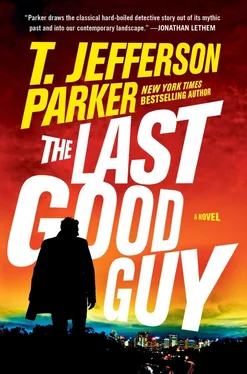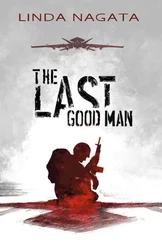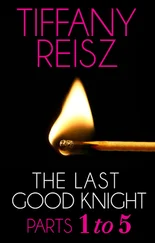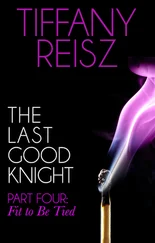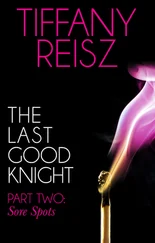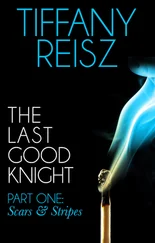Atlas had a rich tenor and his words came to life without effort. His pacing was subtle but dramatic, and he had a nice gift for highs and lows, starts and stops. Occasionally he allowed a Georgia accent that suggested credence and civility. And something of the backwoods, too, self-humored but canny. He used his hands less than most evangelicals I’d seen, keeping them close in to his body and moving them like a boxer. I’ve heard evangelicals called “charismatic,” and this was a good description of Reggie Atlas. His delivery was powerful, articulate, and somehow humane. He seemed to feel the inner battles of which he spoke. He was admonishing his lambs but empathizing with them, too.
So when Pastor Atlas condemned the sins of “adultery and homosexuality,” he expressed what appeared to be genuine sympathy for adulterers and homosexuals. And when he talked about the need for “strong borders and a great wall of faith” between America and her “fine but less obedient neighbors,” he sounded truly sorry that some people could not be allowed to stay in “God’s chosen land.” When he said that abortion was an abomination to the Lord and should be punishable as a crime against all women and men, and that he would “cast the first stone with eyes gushing tears,” I believed him, though I wasn’t sure whom he wanted to tearfully stone, the abortionist or the pregnant woman, or both.
Violet whispered into my ear: “I don’t agree with him on some things, but he makes me want to believe!”
I glanced over at Frank, staring at Atlas with mute, beak-nosed stoicism.
I looked back up to the pastor. Violet whispered something to Frank. I wondered why she was always talking, running, or looking behind her. Never at rest. Was she afraid something bad would happen if she was still? If so, what?
Mom and Dad made us kids go to church until we were twelve, respectively. After that, up to us. We were baptized. I always liked the sermons. I daydreamed through them, sometimes, of surfing and girls and baseball. But I wasn’t bored by the sermons. I was inspired.
The final part of Atlas’s sermon claimed that public and private wars could be won with the same two things: faith and action. Faith required prayer, and action required courage.
He told a story of his early years preaching in rural Georgia, how after a day of carrying the word to the poor, he’d park his VW van down by a creek or in a campground or far out in a parking lot, and he’d set his cooler on a table if there was one, or on the ground, and he’d take the loaf of bread, then part the layer of ice cubes he’d buy every third night — only cost a quarter back then — and dig out the baloney and cheese and the condiments. Baloney and mustard made the miracle, he said. And it took lots of miracles, because he might take up two, even three collections on a good day, but he’d still barely have enough gas money to get to the next town and do it all again.
One night in a park he was mugged by three young black men, no more than boys, really, but plenty big and rough. This was back in the days when the townspeople still wore their hair big, with the combs in them. Reggie was eighteen, less than six months on the road as an evangelical. It had rained earlier and there were ticks falling off the trees. After the muggers had beaten him down and rifled through his van and taken what they wanted and thrown the last of his food on the ground, Reggie had lain there in the cold dirt with the ticks landing all around him, and steadfastly refused to pray. Refused to ask for help. Refused to thank the Lord for sparing his life. For sparing his eyes and his hands and his vehicle or anything else, because Reggie was angry at the Lord for betraying His servant into the hands of the wicked. The longer he lay there, the angrier he got.
By the time Reggie had washed himself off in a park bathroom and gotten the ticks off him, collected what food wasn’t ruined, then put his meager possessions back in order and climbed into the driver’s seat, he had one hundred percent retired as a preacher. He was done. It was over. He had failed his Lord and his mama and the old man and himself.
But the engine of his van wouldn’t turn over, and the more he cranked the starter the weaker the battery got, until there was barely enough charge left to power the radio. He listened to it — to a country preacher he had always admired and who had gotten his own show — until his battery was completely dead. “Like my spirit,” said Reggie.
It was late by then, and he scrunched down in the uncomfortable van seat and let his head roll against the window. It was early spring and the glass was cold. He had almost fallen asleep when he saw an old man walking across the park toward him. It looked as if he had emerged from behind a young magnolia, but Reggie wondered how the man could have hidden himself behind the slender, still leafing tree.
The man carried a black duffel and it looked heavy. He set it on the picnic table and came to the window. Reggie looked at his face through the dew-dripping glass. An older guy, long white hair brushed back. Blue eyes in a haunted face. Reggie tried to roll down the window, but they were electric and he had no power. He swung the door open and stepped out.
“I heard you preach today,” said the man. “In the holler down to the orchard.”
“Then you heard my last preaching,” said Reggie.
“Looks like they got the better of you.”
“Three on one. I’m tough, but I ain’t that tough.”
“What did they take?”
“If it was good they took it.”
“Here.”
The old man tugged lightly on the sleeve of Reggie’s coat and led him to the picnic table. There, he unzipped the big black duffel and began pulling things out. Reggie said the man didn’t rummage around inside, he just pulled certain things out and left others, as if he knew exactly what he needed and where it was. Reggie watched the collection pile up on the table: baloney — same brand as his — and bread and a few cans of pork and beans and a box of crackers, a can of condensed milk. Then a Falcons sweatshirt that didn’t even look that dirty, and a bottle of body-and-hair wash, and a bath towel, white and folded and once belonging to the Holiday Inn. The old man rested one foot on the picnic bench and from inside a sock he pulled some money, folded and dented in the shape of his ankle. He set two fives on top of the towel. Then put the soap on top so they wouldn’t blow away.
“I’m not taking this,” Reggie had said.
“Or you can take it and get that battery charged,” the old man said. “That was some really good preaching today. You got to me. Maybe I’ll see you down the road, Atlas. I hope you can keep carryin’ the word.”
And off he walked. Reggie Atlas never saw him again.
Murmurs and soft exhales from the congregation. I heard Violet sniffle softly. Saw Frank studying her with apparent concern.
Violet leaned in and whispered: “I want something like that to happen to me.”
After the service a crowd waited in the courtyard to greet Atlas. He stood smiling, pressed by his faithful. His casual attire was perfect for his adopted San Diegans — mostly shorts and jeans and tank tops and T-shirts, except for the older crowd. Kids released from Sunday school ran amok. Awkwardly cool teenagers gathered together on one side of the courtyard. Better dressed than their parents. I pictured Daley Rideout among them, a curly-locked wiseass with a pretty face and a high IQ.
From here you could see the Pacific glistening under a light bank of clouds. Justine, my wife, had died out in that ocean, not far from here. Flying her Cessna 182, which she had affectionately named Hall Pass . She’d bought it used on her public defender’s salary, painted it pink. A failed fuel pump. No fault of hers. No fault of the ocean. But from that day on, I’d never been able to view the Pacific as pacific. To me it was dangerous and unforgiving, a thing to be feared. I felt the same way about the God that had let Justine die there, terrified and alone. I’m still trying to get over that. Trying to be a bigger man.
Читать дальше
